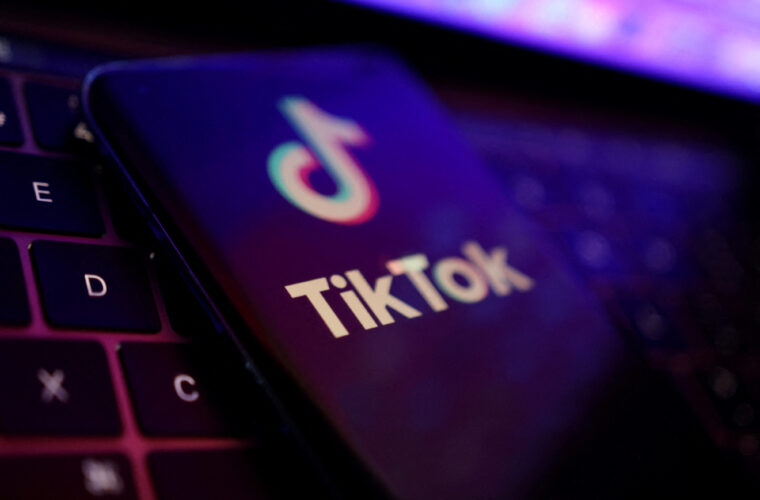Big Tech firms demanded to tackle illegal content
EU’s Law: The internet has revolutionized the way we live, work, and communicate. However, with this advancement comes the challenge of tackling illegal content online. The European Union’s landmark law, which came into effect in 2020, has added some recent changes which are aimed at ensuring that big tech firms take responsibility for the content on their platforms.
The European Union has recently agreed on new digital regulations requiring tech giants such as Google and Meta to take down illegal content on their platforms more aggressively. Failure to comply with these regulations may result in hefty fines of up to 6% of the company’s global annual revenues. The Digital Services Act, a significant piece of legislation, will limit how digital giants target users with online ads and ban deceptive tactics such as dark patterns. The law will affect user-generated content sites like Facebook, Instagram, Twitter, YouTube, and TikTok. The DSA is separate from the Digital Markets Act and is expected to come into force as early as 2024. This law has far-reaching implications for companies like Google, Facebook, and Twitter, which have been accused of not doing enough to tackle hate speech, terrorist propaganda, and other illegal content.
The EU’s approach to tackling illegal content
The approval of new legislation by the European Union puts pressure on major tech giants like Meta, Google, and Twitter to actively combat illegal content on their platforms, or else face the possibility of paying substantial fines in the billions. Following extensive negotiations lasting approximately 16 hours, the EU reached an agreement early on Saturday regarding the Digital Services Act in Brussels. This groundbreaking law mandates that companies adopt a more proactive approach to policing their content and promptly removing anything deemed harmful or illegal.
EU President Ursula von der Leyen expressed her support for the new rules via Twitter, stating, “Our new rules will safeguard users online, ensure freedom of expression, and create opportunities for businesses. What is considered illegal offline will now effectively be illegal online within the EU. This sends a strong message to individuals, businesses, and countries worldwide.”
This historic vote comes over a year after the EU introduced the Digital Services Act (DSA) and the Digital Markets Act (DMA) to the European Parliament. The DSA was approved last month and, together with the DMA, aims to curb the marketing power of big tech. The EU emphasizes that this legislation is the first of its kind worldwide, targeting digital regulation.
“The objective is to protect the digital realm against the proliferation of illegal content and guarantee the preservation of users’ fundamental rights,” stated the EU. The law applies to platforms with over 45 million monthly active users in the EU. An integral aspect of the legislation focuses on restricting how tech giants can target users with online advertisements. The DSA will effectively prohibit platforms from employing algorithms that utilize personal data based on factors such as gender, race, or religion when targeting users. Furthermore, targeting children with ads will be forbidden.
This new EU law will have implications for popular user-generated content platforms, including Meta-owned sites such as Facebook and Instagram, as well as Twitter, TikTok, and YouTube. It arrives at a time when lawmakers in the United States are still grappling with how to improve big tech companies’ efforts in curbing harmful content.
A briefing on DSA – what is it?
The EU’s landmark law, known as the Digital Services Act (DSA), represents a significant shift in the regulatory landscape for online platforms. At its core, the DSA aims to ensure that big tech firms take responsibility for the content on their platforms, focusing on tackling illegal content such as hate speech, terrorist propaganda, and child exploitation materials. Under the DSA, online platforms must proactively identify and remove illegal content while providing users with clear and transparent content moderation policies and mechanisms for appeal.
Another critical aspect of the DSA is the requirement for big tech firms to provide greater transparency in their algorithms and data practices. This includes disclosing information about how algorithms prioritize and promote content and sharing data with researchers and regulators to understand these platforms’ impact on society better. Additionally, the DSA introduces new rules on targeted advertising to protect users’ privacy and curb the spread of disinformation and harmful content. To enforce these regulations, the EU has established a regulatory framework that includes national digital services coordinators responsible for monitoring and enforcing compliance with the DSA. Non-compliant companies can face substantial fines, up to 6% of their global annual revenue, providing a strong incentive for big tech firms to take these regulations seriously and invest in more robust content moderation systems.

The DSA is separate from the Digital Markets Act, which EU institutions approved last month, but both come with the threat of hefty fines. But whereas the DMA seeks to curb Big Tech firms’ market power, the DSA ensures platforms get rid of toxic content quickly. The law will affect user-generated content sites like Facebook, Instagram, Twitter, YouTube and TikTok.
A Google spokesperson said the company welcomes the DSA’s goals but added it wants to work with EU policymakers to “get the remaining technical details right to ensure the law works for everyone.”
“We welcome the DSA’s goals of making the internet even more safe, transparent and accountable, while ensuring that European users, creators and businesses continue to benefit from the open web,” the spokesperson told CNBC. “As the law is finalized and implemented, the details will matter.”
But let’s remember, as users of these platforms, we, too, have a role to play in combating illegal content. By reporting harmful content, engaging in respectful online discourse, and demanding greater transparency and accountability from big tech firms, we can contribute to a safer and more inclusive digital environment. Ultimately, the success of the EU’s landmark law will depend on the collective efforts of all stakeholders to ensure that the internet remains a space for innovation, communication, and connection, free from the scourge of illegal content.



